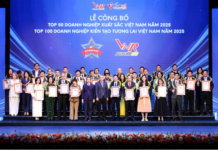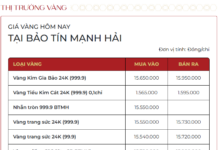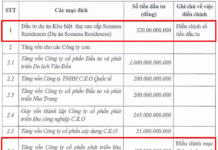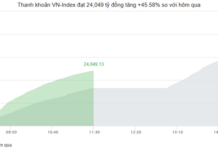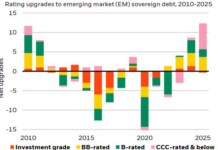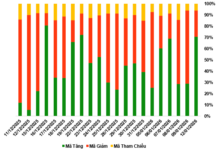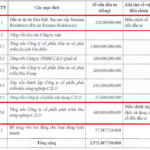On June 14, the National Assembly passed the Law amending and supplementing a number of articles of the Law on Standards and Technical Regulations. The Law stipulates that it will take effect from January 1, 2026.
RETAINING THE PROVISION ON CONFORMITY DECLARATION
Before the National Assembly voted to pass the Law, on behalf of the Standing Committee of the National Assembly, Mr. Le Quang Huy, Chairman of the National Assembly’s Committee on Science, Technology and Environment, reported on the explanation, reception, and editing of the draft Law amending and supplementing a number of articles of the Law on Standards and Technical Regulations.
Regarding conformity declaration, Mr. Le Quang Huy said that some opinions suggested abolishing the provision on conformity declaration to minimize administrative procedures, business conditions, and costs for enterprises, avoid overlapping with specialized laws, and be in line with international practices, policies, and orientations of the Party and State on shifting from pre-inspection to post-inspection.
However, other opinions suggested not abolishing but only adjusting the content and procedure of conformity declaration towards reviewing and updating the system of standards quickly and harmoniously with international norms; and electronicizing the conformity declaration process.
On this issue, the National Assembly Standing Committee stated that according to international experience, countries around the world use different terms such as “declaration of conformity”, “self-declaration of conformity”, “product declaration”, or “declaration of compliance”.
However, their essence is the act of declaring, notifying, and committing by enterprises about their products’ conformity to mandatory technical indicators and requirements issued by state agencies, especially for products that pose risks to human health, safety, and the environment.
Recognition signs such as CE (Europe) or certification marks for food and pharmaceuticals by the FDA (USA) are, in nature, signs of conformity declaration, affixed to products for easy recognition by consumers.
According to current legal regulations, the procedure for conformity declaration consists of two steps: (i) evaluating the conformity of the object of the conformity declaration with the corresponding technical regulations and establishing a conformity declaration dossier; (ii) registering the conformity declaration at the specialized agency designated by the Ministry of Industry and Trade and the People’s Committees of provinces and centrally-run cities (specialized agency).
According to the National Assembly Standing Committee, in nature, conformity assessment is to determine whether a product conforms to the technical characteristics and management requirements specified in the applicable technical regulations.
This is scientific evidence and the technical legal basis for state management agencies to inspect, handle disputes, and handle violations of product quality; build consumer trust; and meet the basic requirements of Mutual Recognition Arrangements (MRA) on conformity assessment results within the framework of APEC, ASEAN, EVFTA, and CPTPP cooperation.
At the same time, this regulation is also in line with international practices (ISO 17050-1 standard). Conformity declaration is a necessary and important tool to ensure effective state management, protect consumers, and enhance enterprises’ brands, not an administrative procedure, so it should not be eliminated. Meanwhile, registering the conformity declaration is an administrative procedure to notify the management agency.
MINIMIZING ADMINISTRATIVE PROCEDURES AND COSTS FOR ENTERPRISES
To minimize administrative procedures and overcome the overlap in conformity assessment activities, which causes high costs for businesses, Mr. Le Quang Huy, Chairman of the National Assembly’s Committee on Science, Technology, and Environment, said that the draft Law has stipulated the expansion of the use of conformity assessment results as a basis for conformity declaration activities.

Along with that, products that fully meet the quality management requirements according to the provisions of specialized laws are exempt from conformity declaration, so that enterprises only need to comply with one procedure instead of two as currently regulated.
At the same time, to minimize administrative procedures and costs for enterprises and promote the digitization of conformity declaration registration procedures, the draft Law has edited the provisions on conformity declaration registration towards simplification. Organizations and individuals only need to notify the conformity declaration on the national database on standards, measurement, and quality.
Some opinions also suggested reviewing and clarifying the content of the provision on conformity declaration based on the self-assessment results of organizations and individuals; and reviewing and clarifying the information that organizations and individuals need to provide on the national database on standards, measurement, and quality when carrying out conformity declaration procedures to ensure practicality and avoid difficulties in law enforcement.
Regarding the request to review and clarify the content of the provision on conformity declaration, the National Assembly Standing Committee stated that the regulation on conformity declaration based on the self-assessment results of organizations and individuals is a legal mechanism in conformity assessment activities.
Accordingly, organizations and individuals are allowed to self-assess and take responsibility for the conformity of their products, goods, services, processes, and the environment with the corresponding technical regulations, without requiring third-party certification.
Organizations and individuals conduct self-assessment based on their internal quality control system and testing results of testing organizations (which can be the enterprise’s testing room) and take full responsibility for the accuracy and truthfulness of self-assessment results and legal consequences in case of violations.
This regulation is in line with international practices in Europe, the Russian Federation, the US, China, Japan, Australia, etc., currently applied to products, goods, services, processes, and the environment with medium-risk risks, not applied to products, goods, services, processes, and the environment with high-risk risks, which must be certified by a third party.
Does Merging Wards and Communes Mean a New ID Card?
Many provinces across the country are undergoing a merger of wards and communes, and a question that arises is whether citizens need to reissue their identity cards in this case.
The State Audit Office of Vietnam Refers Two Cases to the Investigative Authorities
The State Audit Office has referred two case files to the Investigation Police Agency for clarification. The first case concerns alleged violations in the management and use of invoices by BP Highlands Import Export Trading Services Limited Liability Company. The second case involves illegal mineral exploitation by Hoang Thanh Thuy One Member Limited Liability Company.
Prime Minister Requests Completion of Land and Housing-Related Documents in 2024
The Prime Minister has instructed the Chairpersons of the Provincial and Municipal People’s Committees to promptly issue, within their authority, or submit to the People’s Councils of the same level for issuance, legal documents detailing specific contents as stipulated by the Land Law and the Law on Real Estate Business. This includes a comprehensive review of existing documents to amend, supplement, replace, repeal, or promulgate new ones to ensure alignment with the provisions of the Land Law, Housing Law, and Law on Real Estate Business. The deadline for completion of this task is set for the year 2024.








